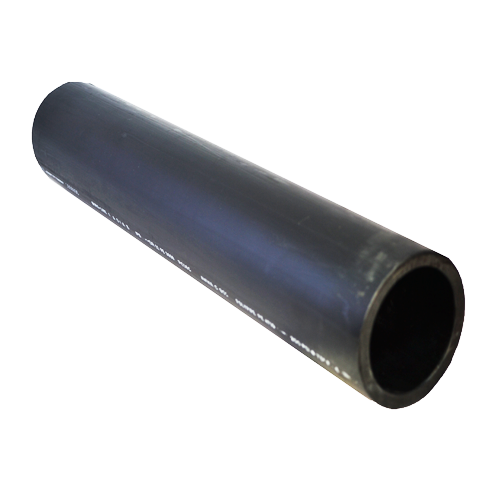Recognizing the Key Conveniences of HDPE Pipeline for Water and Wastewater Monitoring
The use of HDPE pipe in water and wastewater monitoring presents various advantages that merit consideration. Its exceptional durability and long lifespan make it a recommended option for many jobs. Furthermore, the product's resistance to deterioration and chemical damages boosts its integrity in numerous atmospheres. The benefits prolong beyond just long life and resistance. Pipe Supplier American Plastics Midland. Discovering its cost-effectiveness and environmental effect exposes also more compelling reasons for its widespread adoption in modern-day framework
Phenomenal Resilience and Durability

HDPE pipeline stands apart for its extraordinary durability and durability, making it a preferred choice in water management systems. Built from high-density polyethylene, these pipelines can stand up to considerable pressure and anxiety, guaranteeing reliable performance gradually. Their durable nature allows them to withstand severe environmental conditions, consisting of temperature variations and dirt motions, which can trigger other products to fall short.
The life-span of HDPE pipes typically exceeds 50 years, supplying a cost-efficient option for districts and industries alike. Furthermore, the material's light-weight homes simplify installation, decreasing labor expenses and timeframes. This sturdiness reduces the requirement for constant repair services or replacements, better improving its economic appeal.
In water monitoring applications, the integrity of HDPE pipes suggests fewer disruptions and improved solution continuity, making them essential to lasting infrastructure growth. The mix of toughness and longevity solidifies HDPE's function as a keystone in reliable water administration services.

Resistance to Corrosion and Chemical Damage
While several materials catch corrosion and chemical damage in time, HDPE pipelines exhibit impressive resistance, making them perfect for different water administration applications. This strength comes from the molecular framework of high-density polyethylene, which is inherently non-reactive and does not rust like steels or weaken from direct exposure to rough chemicals. Therefore, HDPE is extremely reliable in environments with aggressive substances, such as wastewater systems that may have acids, bases, and natural solvents.
In addition, HDPE pipelines can stand up to ecological variables such as soil level of acidity and saline problems, even more enhancing their suitability for varied applications (American Plastics HDPE Pipe for Oilfield). Their capacity to maintain architectural stability in time minimizes the risk of leaks and failings, which is critical in guaranteeing the security and reliability of water distribution and wastewater administration systems. The resistance to deterioration and chemical damage noticeably contributes to the total effectiveness and durability of HDPE piping services.
Cost-Effectiveness and Financial Advantages
When thinking about the financial ramifications of water monitoring systems, the cost-effectiveness of HDPE pipes becomes evident. These pipelines provide reduced setup and maintenance prices compared to standard products like metal or concrete. Their light-weight nature simplifies transportation and setup, resulting in reduced labor expenditures. Furthermore, HDPE pipelines exhibit a lengthy life-span, often surpassing 50 years, which translates to less substitutes and lasting financial savings.
The resistance of HDPE to corrosion and chemical damages reduces the requirement for costly repair services and substitutes. The pipes additionally sustain effective water circulation, lowering energy expenses connected with pumping systems. By mitigating leakages and water loss, HDPE pipelines add to significant economic benefits for communities and markets alike. Generally, the first financial investment in HDPE piping can yield substantial financial returns over the lifespan of the water administration system, making it a sensible choice for lasting facilities growth.
Environmental Sustainability and Lowered Impact

Convenience and Adaptability in Setup
Due to their distinct homes, HDPE pipes provide amazing flexibility and adaptability in installation, making them ideal for a vast array of applications. Their lightweight nature enables simpler handling and transportation, decreasing labor expenses and installment time. HDPE pipes can be bent and formed to fit various terrains and task needs, which is particularly useful in challenging atmospheres.
Furthermore, their resistance to rust and chemical damage enables for setup in diverse setups without the need for specialized protective coverings. The ability to fuse joints develops a continual, leak-free system, improving the overall integrity and dependability of the installment. HDPE's adaptability likewise suits ground activity, minimizing the risk of damage in areas prone to moving soil. On the whole, these qualities make HDPE pipelines not just flexible yet additionally a recommended selection for water and wastewater monitoring systems.
Regularly Asked Inquiries
How Does HDPE Pipe Compare to PVC in Water Monitoring Applications?
HDPE pipe uses remarkable flexibility, resistance to rust, and sturdiness compared to PVC. Its lighter weight helps with simpler setup, while its long life expectancy decreases substitute prices, making HDPE a favored choice in water administration applications.
What Is the Lifespan of HDPE Piping Under Regular Problems?
Under regular problems, HDPE pipes can have a lifespan ranging from 50 to 100 years. Their durability and resistance to corrosion add to their long-lasting efficiency in various applications, making them a reputable choice for facilities.
Are HDPE Piping Recyclable After Their Life Span?
Yes, HDPE pipelines are recyclable after their life span. custom hdpe pipe manufacturing Midland TX. They can be processed and repurposed right into new products, substantially minimizing environmental effect and promoting sustainability within the market, making them a green option for piping services
What Is the Installation Process for HDPE Water Lines?
The installation process for HDPE pipelines entails site prep work, trenching, pipe fusion or mechanical signing up with, backfilling, and stress testing. Proper methods guarantee a durable and effective system for carrying water and wastewater effectively.
Can HDPE Pipeline Be Utilized for Both Potable and Non-Potable Water Systems?
Yes, HDPE pipes can be made use of for both safe and clean and non-potable water supply. Their convenience, resilience, and resistance to deterioration make them ideal for numerous applications, ensuring safe and reliable transportation of water in various contexts.